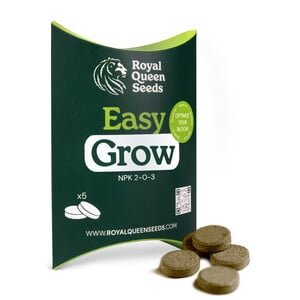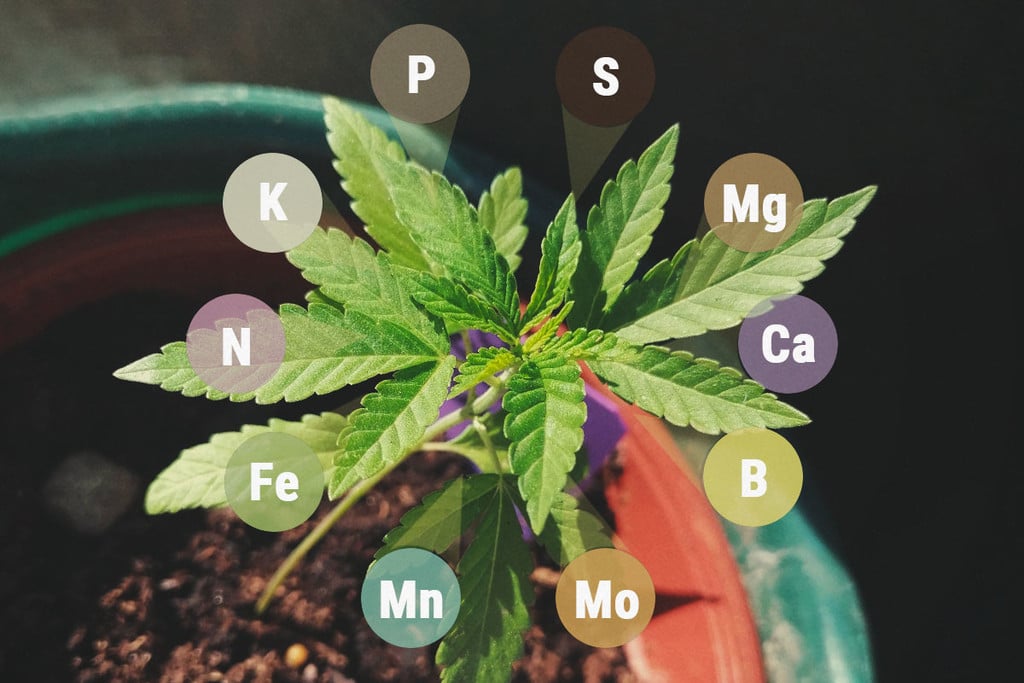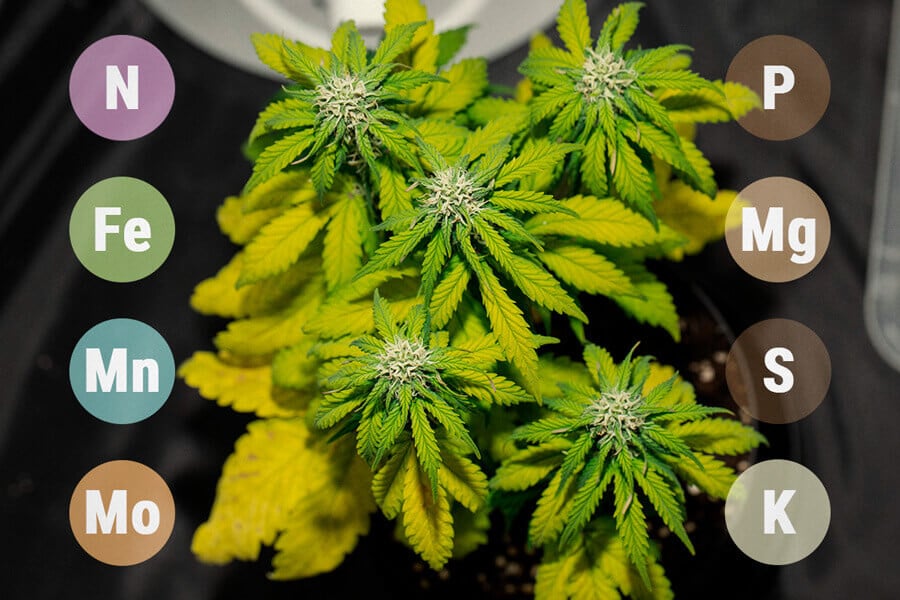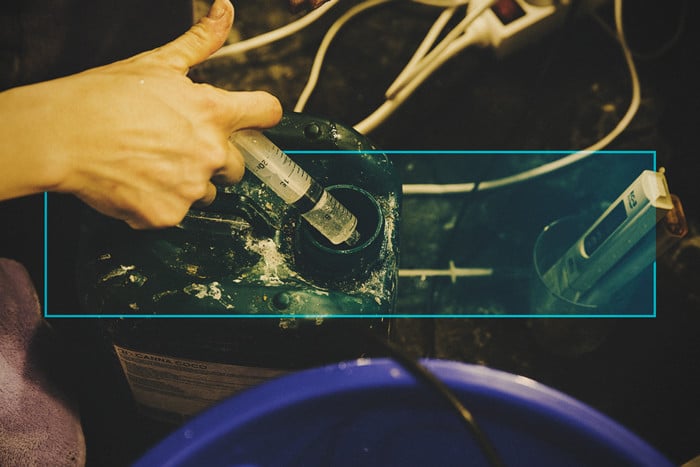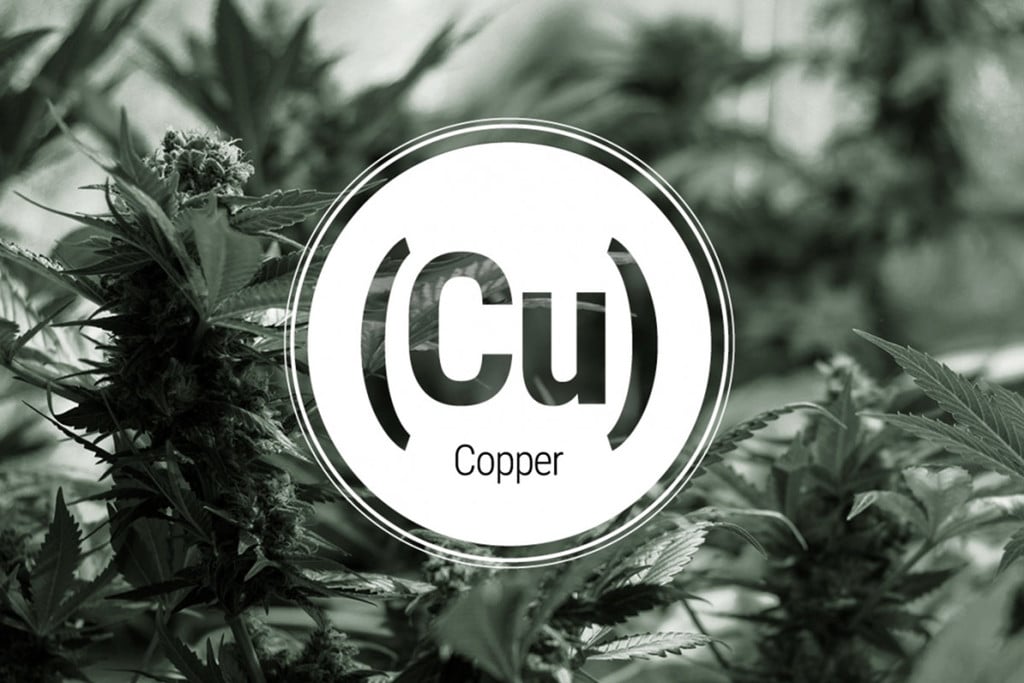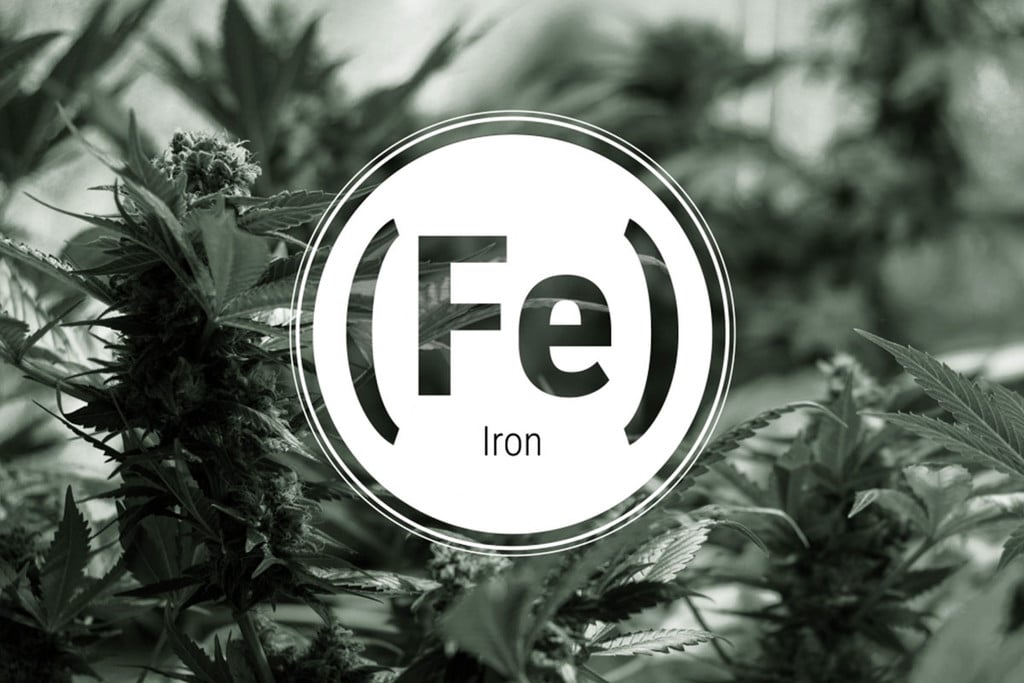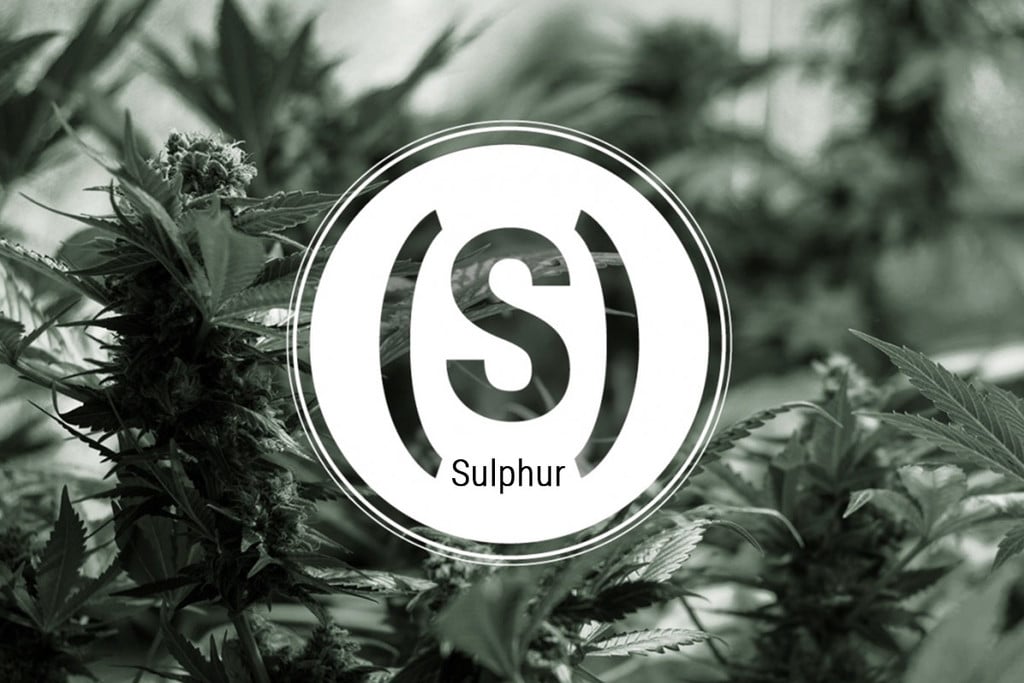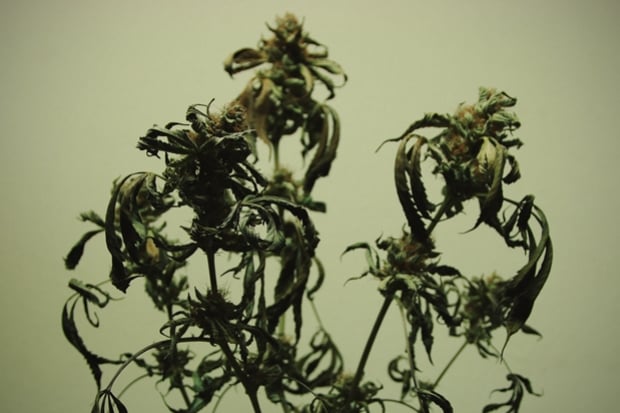.
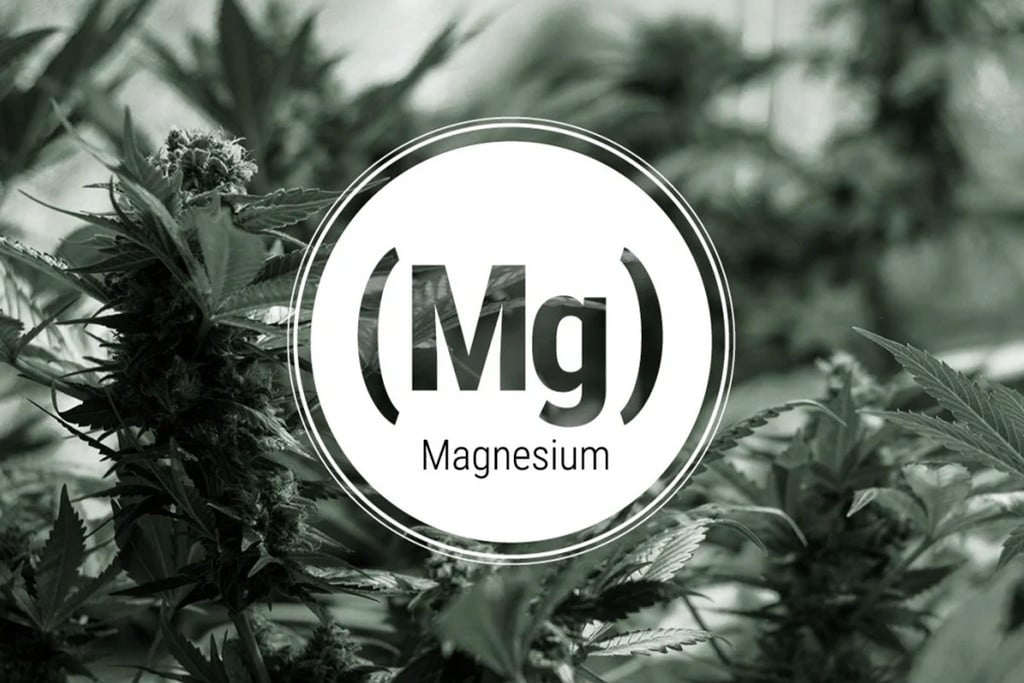
Magnesium Deficiency In Cannabis Plants
Magnesium deficiencies can wreak havoc on cannabis plants. Luckily, with the right knowledge, treating and preventing magnesium deficiencies in weed plants is simple. Follow along to learn everything you need to know.
Contents:
- Understanding the role of magnesium in cannabis growth
- Magnesium deficiency in cannabis: what are the signs and symptoms to look out for?
- Causes of magnesium deficiency in cannabis plants
- How to treat magnesium deficiency in cannabis
- How to prevent magnesium deficiencies when growing weed?
- Magnesium: a key nutrient for growing healthy cannabis
If you're concerned about growing healthy cannabis plants, you know just how important it is that your weed plants get all the nutrients they need to fuel their growth. One of the most vital nutrients for cannabis is magnesium—a compound that makes up the core of the chlorophyll molecules plants use to photosynthesise.
Unfortunately, magnesium deficiencies are extremely common in cannabis plants and can result in stunted growth and poor harvests. Luckily, with the right know-how, spotting and preventing magnesium deficiencies is easy. Keep reading to learn how.
Understanding the Role of Magnesium in Cannabis Growth
Nitrogen (N), phosphorus (P), and potassium (K) are "the big three" of plant nutrients. In fact, they are the main constituents of most basic plant fertilisers. However, there's a long list of other compounds that also play important roles in plant health, and providing these nutrients to your cannabis plants can really maximise their growth. Magnesium is, without a doubt, among the top nutrients needed to help cannabis plants grow to their full potential.
Arguably the biggest reason magnesium is important for plants comes down to its role in chlorophyll production. Magnesium molecules are the main building blocks of chlorophyll—the green pigment in plants that fuels photosynthesis. Therefore, plants that don't get enough magnesium struggle to produce chlorophyll and ultimately struggle to convert light energy into sugars to physically fuel their growth.
Moreover, magnesium also plays a key role in the formation of plant cells and proteins, the regulation of enzymatic processes, and much more.
.jpg)
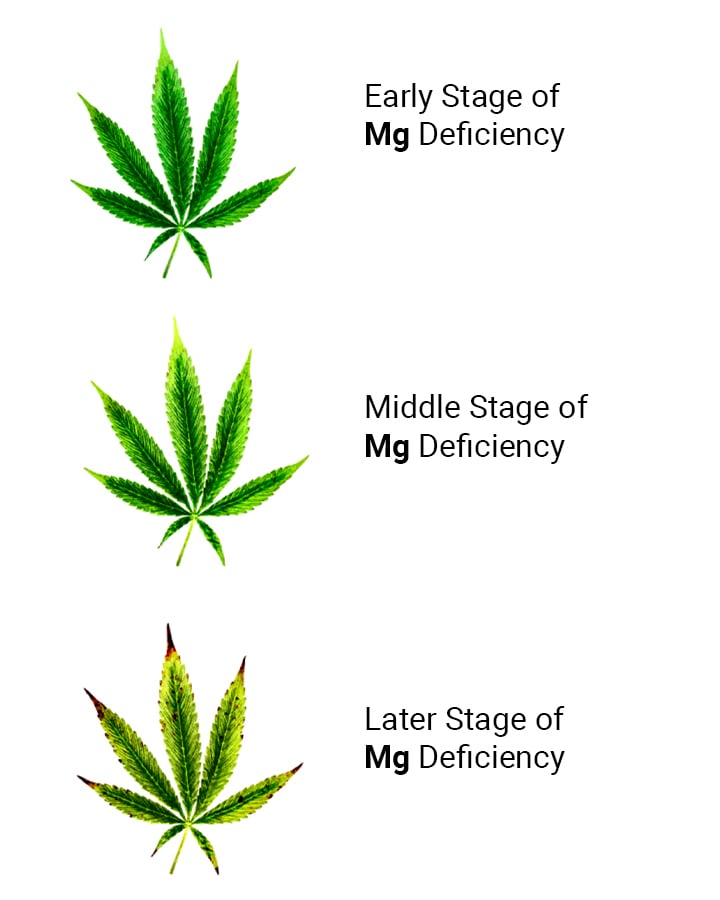
Magnesium: A Secondary Macronutrient for Cannabis
Plant nutrients are often categorised as “macro” or “micro”, depending on how central they are to the health of plants. For a long time, nitrogen, phosphorus, and potassium were considered the three main macronutrients needed for plant survival. Meanwhile, nutrients like magnesium, calcium, and sulphur (along with many others) were considered micronutrients.
Nowadays, however, we're learning that plants, much like humans, are holistic beings that thrive in the presence of a range of various nutrients, not just those needed to keep them from dying. That's why magnesium is now widely considered a secondary macronutrient along with sulphur and calcium.
The Function of Magnesium in Cannabis Plants
In cannabis plants, magnesium helps to:
- Promote the formation of chlorophyll, which is essential to photosynthesis.
- Support the transport and metabolism of other nutrient compounds, particularly phosphorus.
- Promote the formation of vital plant proteins.
- Support the synthesis of nucleic acid, a compound vital to the growth and differentiation of healthy plant cells.
- Regulate the proper formation of stomata, which manage gas and water exchange between plants and their environment.
- Regulate multiple plant enzymes.
Magnesium Deficiency in Cannabis: What Are the Signs and Symptoms to Look Out For?
The key to preventing or addressing nutrient deficiencies in cannabis plants is being able to spot a deficiency early, before it causes major problems for a plant. Unfortunately, this can be challenging, as a lot of nutrient deficiencies produce similar symptoms. Below, we'll outline some of the key symptoms of magnesium deficiency in cannabis.
Interveinal Chlorosis
Interveinal chlorosis is the direct result of reduced chlorophyll production and activity. It refers to the yellowing of the leaf tissue between veins. In cannabis, interveinal chlorosis is very easy to spot—rather than starting at the edge of leaves, it begins from the inside of a leaf, or leaflets, and gradually spreads outwards.
Brown Spots
Cannabis plants that aren't getting enough magnesium often develop dark or reddish spots on their leaves. This is typically the result of further chlorophyll degradation in the leaves, as well as the transportation of magnesium from old leaves to newer ones. Unlike nitrogen, for example, magnesium is a mobile nutrient that plants are able to move around throughout their organism. Hence, when a cannabis plant stops getting enough magnesium from its environment, it naturally begins using magnesium stored in its old leaves to support the growth of new foliage.
Red Stems
Some cannabis plants develop purple or reddish stems simply as a result of their genetics. However, sometimes purple or red stems and branches can be a sign of a magnesium deficiency. In fact, the discolouration of petioles (the small stalks that attach a leaf to a branch) is often associated with magnesium deficiency.
Fading, Yellowing, and Curling Leaves
As magnesium deficiencies progress, they eventually cause entire leaves to lose their vibrant green colour. Eventually, affected leaves will turn yellow and fall from the plant. Again, this is usually due to the loss of chlorophyll caused by the lack of magnesium. Curling leaves with interveinal chlorosis or faded colours is another common sign of advanced magnesium deficiencies in cannabis.
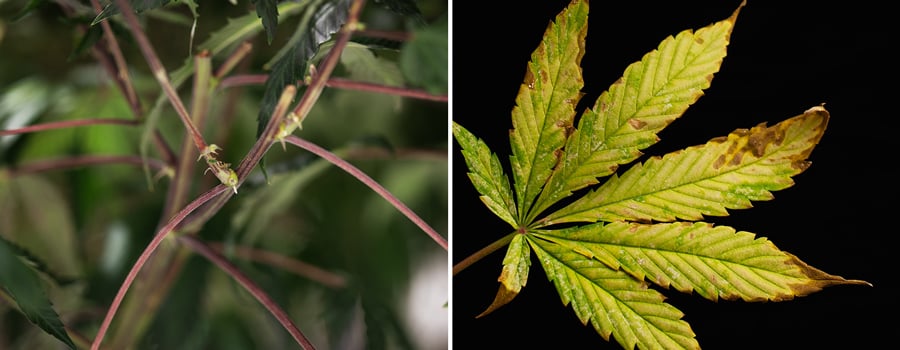
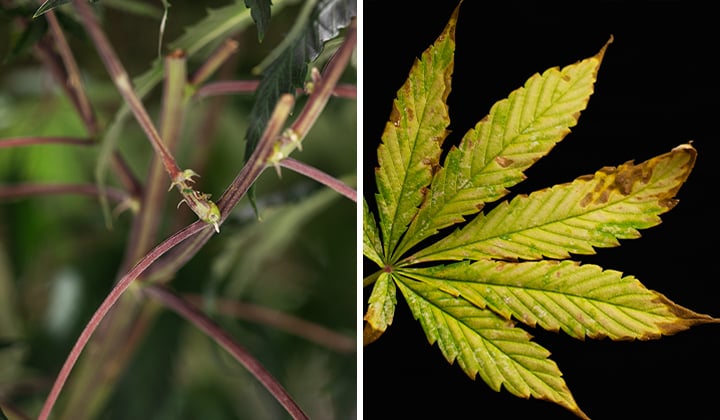
Leaf Necrosis
Necrosis refers to the death of cells. Leaf necrosis, therefore, refers to the death of cells in a plant's leaves, and is a common sign of an advancing magnesium deficiency. As mentioned earlier, magnesium plays a key role in the proper growth, development, and differentiation of plant cells. In the severe absence of magnesium, the cells in a cannabis plant's leaves may start to die, causing leaves to wither. Leaf necrosis from a magnesium deficiency usually affects older leaves first, but severe deficiencies may also affect young leaves.
Poor Bud Development
Severe nutrient deficiencies during the flowering phase of a cannabis plant's life are very undesirable. While magnesium isn't essential to the development of flowers, a lack of magnesium may still impact a cannabis plant's flowering process. In fact, you may notice the symptoms of a magnesium deficiency get worse as a plant begins flowering (depending on the severity of the deficiency), causing the buds to become airy and perhaps even discoloured.
Causes of Magnesium Deficiency in Cannabis Plants
There are many potential causes of magnesium deficiency in cannabis plants. These include:
- Poor soil composition: The most common cause of magnesium deficiencies in cannabis plants is a lack of magnesium in a plant's soil or growing medium. This usually means there isn't any magnesium-rich organic matter in the soil you bought or prepared. Alternatively, it could also mean that the fertilisers you're using to feed your plants don't contain enough magnesium.
- Improper pH: pH is vital for cannabis plants to properly absorb the nutrients present in their soil. Unfavourable, particularly acidic conditions can interfere with cannabis' ability to take up magnesium.
- Overwatering and/or poor drainage: Overwatering or poor drainage causes a poor environment for the roots and interferes with their ability to absorb all nutrients, including magnesium.
- Using hard water: In the world of cannabis cultivation, and horticulture in general, hard water refers to water with a high-enough mineral content to potentially interfere with how a plant feeds. The exact definition of what constitutes hard and soft water varies among countries. In the US, for example, water with over 120mg/l (120ppm) is considered hard. When you regularly water your plants with hard water, you may be providing them with excess nutrients or minerals that, over time, may interfere with their ability to take up nutrients from their soil or fertiliser. In general, it is always best to water cannabis using soft water, as this serves as a sort of "clean slate" and minimises any potential interactions with your plants' fertiliser or growing medium.
- Nutrient leaching: Nutrients can leach from the soil as a result of heavy watering or exposure to heavy rain. If you overwater your plants, you may be causing magnesium to leach from their soil, thereby causing a deficiency.
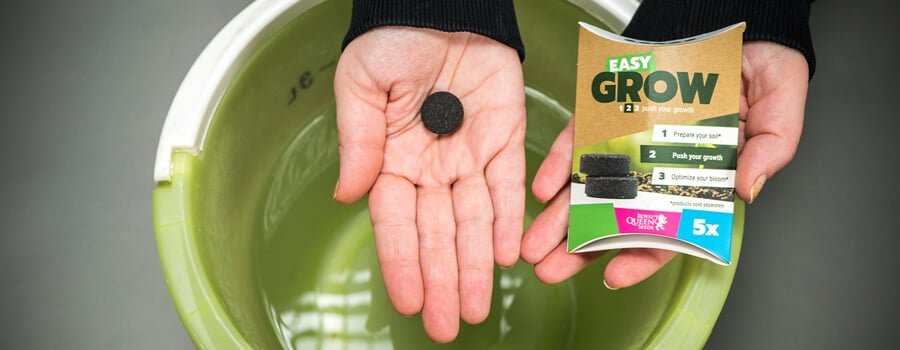
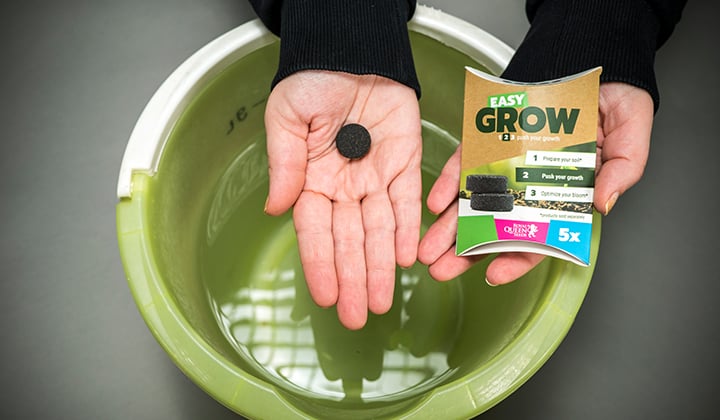
How to Treat Magnesium Deficiency in Cannabis
As is the case with most nutrient deficiencies, treating a magnesium deficiency in marijuana plants involves multiple steps, including identifying the root cause of the problem, correcting the cause, and nursing your plants back to health.
Keep reading for a detailed approach on how to correct magnesium deficiencies in cannabis plants.
1. Adjust pH and EC of Your Soil, Water, and Nutrients
One of the best places to start when dealing with any kind of nutrient deficiency is to test the ppm/EC and pH of your growing medium, water, and fertiliser. If the pH is off, your plants will struggle to absorb magnesium even if it is present in the right concentrations.
Meanwhile, if your soil ppm/EC is too high due to a buildup of nutrients or salts (a common side effect of excessive use of chemical fertilisers), your plants will similarly struggle to take up magnesium and other nutrients via their roots.
Use a pH kit and ppm/EC pen to test your soil, the water you use to hydrate your plants, as well as your nutrient solution. When doing so, keep the following in mind:
- In general, the ideal pH for soil-grown cannabis plants is 6.0–7.0. Hydroponic plants, on the other hand, prefer slightly more acidic conditions of 5.5–6.5. If the pH tests outside of these desired ranges, you will need to adjust it using pH up or down products, or organic amendments.
- The ppm of your water should be under 120ppm to avoid affecting the balance of nutrients in your growing medium or fertiliser.
- If you use nutrient solutions to feed your cannabis plants, ensure you prepare your solutions per the manufacturer's instructions to avoid overfeeding or underfeeding your plants.
2. Review Your Water Supply
If you notice that the water you're giving your plants isn't of the right pH or is too hard, consider changing your water supply. Some great sources of clean water for cannabis include rainwater, as well as AC runoff.
3. Give Your Plants Magnesium Using a Foliar Spray
Once you've addressed the pH of your soil, water, and nutrient solution, it's time to give your plants the magnesium they've been missing. The best way to do this is using a foliar spray, as your plants will be able to absorb the magnesium directly through the pores in their leaves (which is a lot faster than absorption via the roots).
4. Amend Your Soil
If you're growing cannabis in soil, one of the best ways to ensure your plants get the nutrients they need is to prepare your own super soil. Essentially, super soils are very rich in organic matter that, in the presence of beneficial soil bacteria, gets released to your plants on an as-needed basis. If prepared properly, cannabis super soils can keep your plants fed from the day you pop your seeds right up until harvest.
Some other ways to improve the soil to help your cannabis plants absorb more magnesium include:
- Using perlite and vermiculite to improve the drainage of your soil, allowing your plants' roots to dry out quicker after watering and thereby better absorb nutrients.
- Adding clay and organic matter like worm castings, compost, dolomite lime, and bat guano to your soil.
5. Prune Away Affected Leaves
Once you've addressed the magnesium deficiency by following the steps above, you'll want to aid your plants' recovery by removing any leaves damaged as a result of the deficiency. This will help minimise your plants' energy expenditure, allowing them to focus their efforts on creating new, healthy foliage, rather than maintaining old, damaged leaves.
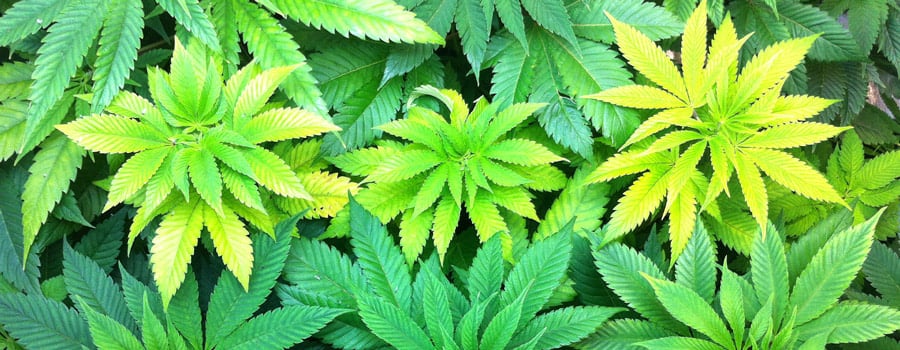
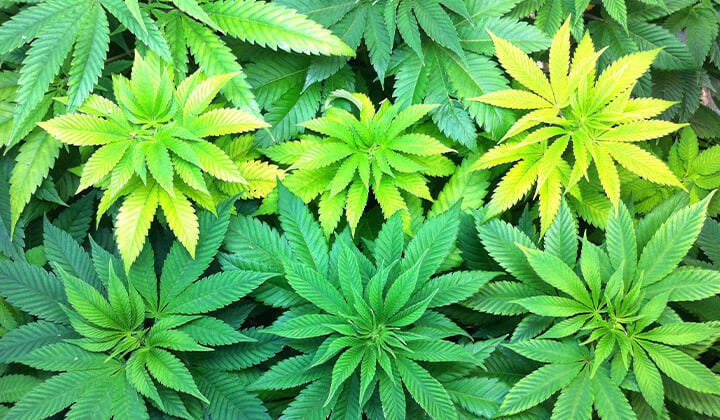
How to Prevent Magnesium Deficiencies When Growing Weed?
Actively preventing nutrient deficiencies is always the best approach to growing healthy cannabis plants. Even if you catch a deficiency early, correcting it will take time and may cause your plants serious stress that can affect their health and yields.
To prevent magnesium deficiency, and all nutrient deficiencies for that matter, remember to:
- Regularly check the pH of your soil, water, and nutrients. Remember, even if your plants have access to magnesium, they won't be able to absorb it if their pH is off.
- Maintain a healthy soil with a rich mix of organic matter, vermiculite, and perlite. Healthy natural soils have what's called a good cation exchange capacity, meaning they can trap nutrient compounds and make them available to your plants when they're needed. Soils with a good cation exchange capacity are also less likely to lose nutrients due to leaching.
- Ensure your soil drains well. Cannabis likes to grow in airy, well-draining soil. Soils that don't drain well will trap moisture, creating an unfavourable environment for your plants' roots and impeding their ability to properly take up nutrients.
- Watch your feeding and watering schedules. Use a feeding calendar to track when and how much to feed your plants, and remember to always err on the side of underwatering as opposed to overwatering.
Magnesium: A Key Nutrient for Growing Healthy Cannabis
Magnesium is a secondary macronutrient that plays multiple vital roles in supporting the health and growth of cannabis plants. In fact, without enough magnesium, cannabis plants can experience extremely stunted growth and produce subpar yields. Luckily, with the information outlined in this article, you now know exactly how to spot, treat, and prevent magnesium deficiencies in your cannabis garden.



























